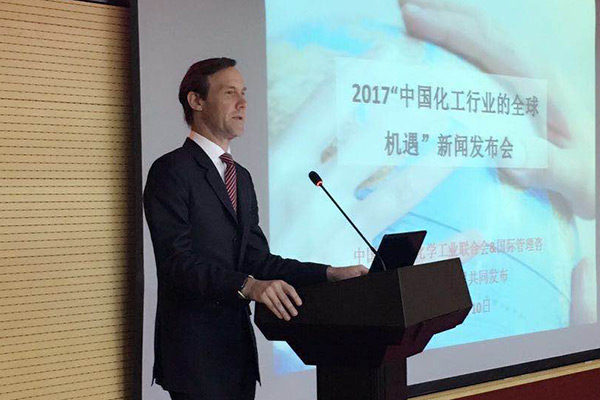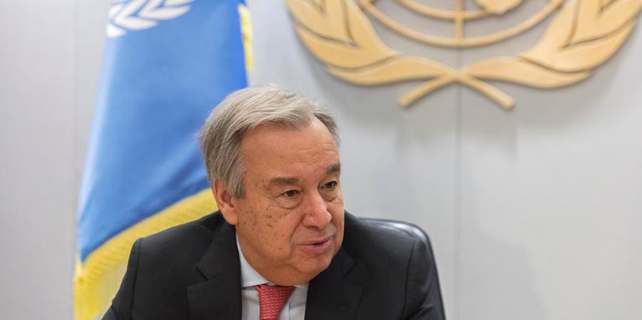Chinese companies called to help upgrade refining capacity along Belt and Road
 |
|
Thomas Luedi, global partner of A. T. Kearney made a speech on the chemical industry in Beijing on May 10, 2017.[Photo provided to chinadaily.com.cn] |
A. T. Kearney made the suggestion in a report, Global Opportunities for the Chinese Chemical Industry, which it jointly released on Wednesday with China Petroleum and Chemical Industry Federation (CPCIF). The report also said that these countries have been deterred by the lack of funds, technology and equipment to do so.
China's annual refining capacity reached 720 million tons by the end of 2016 and the country has 24 large-scale refineries in operation. It owns critical intellectual property and world-class technologies and has significant experience planning and constructing large-scale refineries, the report said.
The report also stated that nine countries, including India, Iraq, Russia, the United Arab Emirates, Malaysia, Saudi Arabia, Vietnam, Turkey and Egypt, plan to expand oil refining capacity by more than 160 million tons.
It further pointed out that refining facilities in many countries need urgent upgrades. For example, refineries in Russia, Kazakhstan, Uzbekistan, Kyrgyzstan, Azerbaijan and Ukraine were mainly built during the era of the former Soviet Union and many refineries in the Middle East, such as those in Iraq, Oman, Kuwait and Egypt, were built in the 1950s and 1960s. It added that most refineries in Southeast Asian countries, like in Myanmar, Thailand and the Philippines, were built in the 1970s and 1980s.
The report concludes that Chinese refiners are strongly positioned to collaborate with partners along the Belt and Road, with a primary focus on ASEAN, the Middle East, Central Asia and Russia, and to participate in greenfield, upgrading and expansion projects.
However, although opportunities are aplenty for Chinese companies, Zeng Jian, CPCIF Party chief, warned that Chinese companies need to pay attention to different cultures and policies among different countries along the Belt and Road to lower risks.









